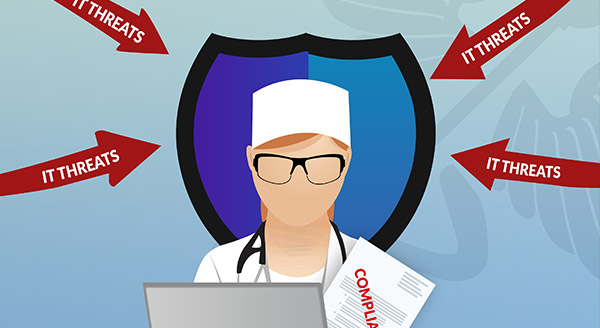

Using flash drives and CDs for storing copies is no longer the best way to back up your data. These old methods are efficient, but they still put your data at some risk, because it's easy to lose track of them. Optical disks, like CDs, are also subject to natural oxidization and wear, making them unreadable after some time. Not to mention, they are notoriously hard to update.In the digital age you need a more reliable and convenient method of backing up data. It doesn't matter how big or small your business is. If you're spending too much time and effort in creating backup copies for your data, then something's amiss.One thing's for sure: you're going to have to spend a little more on backup systems. It's important that you prioritize data backup systems because your business' existence depends on this. If a natural disaster or human error results in a complete wipe out of your data, it will be hard to recover.What's interesting is that there are still many companies that do not realize the dangers of not having a reliable backup system. In fact, a Gartner research initiative showed that less than 20 percent of small to midsize businesses considered data backup solutions as a top spending priority in 2011. If you're among those who place little importance on data storage, think about the money you'll lose when you lose data. It’s not impossible either: A 2011 survey of more than 1,000 employees revealed that 48 percent had lost or accidentally deleted data and 13 percent were worried about natural disasters.You need to shore up your backup systems. Your IT personnel can perform the backup process. This is not a very complicated process and it can save you money. You simply have to make sure that you have a dedicated staff that will perform regular backups and implement proper contingencies. Of course, there is one question that will never be definitively answered: Should you invest in onsite or offsite backup?Onsite or Offsite?There are pros and cons to doing both and you'll need to consider the nature of your business before you can choose one.If you decide to do onsite backup, you will have to ensure that you store files in more than one place. Ditch the CDs and opt for external hard drives. It's harder to misplace them and they can store larger amounts of data. Another option are magnetic storage tapes, which are a technology more than half a century old, but still popular due to their low cost, reliability, and capacity of up to four terabytes (over four thousand gigabytes or four million megabytes) in some of the latest models.Of course, onsite storage will also require taking precautions, including storing the backups in a safe way, like in a safe or dedicated vault, and implementing additional security. Offsite backup plans can be more advantageous, as they reduce the risk of data loss and damage or loss of backup data.Cloud StorageThe cloud has become a very popular option for data storage because it's convenient and safe. Many experts believe cloud storage is the most reliable backup solution because it is secure, fully customizable, cost-effective, and easy to use.But then there's always the issue of data security. Although cloud storage has gained a reputation for security, this has become a legitimate concern in the wake of the discovery of Heartbleed, a huge encryption flaw that put the data of millions at risk.Storage Area NetworksStorage area networks (SAN) may provide the answer. These are storage devices that use a high-speed network that makes it easy to store and retrieve data. SANs don't store data in the servers. Instead, they combine all data in a place that's easily accessible to any application.Backing up data is expedited because information is transferred from one device to another without the need to interact with a server. It also eliminates the need for CPU servers to create backups. Furthermore, these make it possible to store data in remote locations, further increasing your data's security.These are no longer as expensive as before, though they can still cost thousands of dollars. But since these reduce the number of hard disks used by 50 percent, investing in them saves you space and money.Bottom LineIn summary, it's very important that you prioritize data backup solutions. Your business won't have a fighting chance if you lose critical information to a natural disaster or unexpected errors. Even if you do find a way to restore some data, the time and money spent for recovery may not be enough to make up for what you've lost.Think of the worst possible scenario. That way you can make multiple copies of your data and store them in various places where they're protected. Implementing a better backup system for your business won't just require money; it will call for dedication and prudence. And, of course, the right people.For finding, implementing, and managing reliable backup solutions, contact Greenlight.